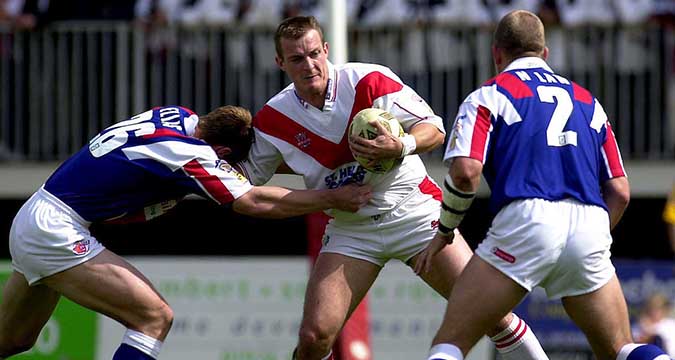 Last week Paul Newlove talked about his dad John, his uncle Charlie Stone, life at Post Office Road and Odsal, his early Test career, and his big-money move to St Helens.
Having won three major trophies in 1996 and 1997, Saints fell into an 18-month decline before further silverware was delivered by Ellery Hanley and Ian Millward. Newlove, who w
Last week Paul Newlove talked about his dad John, his uncle Charlie Stone, life at Post Office Road and Odsal, his early Test career, and his big-money move to St Helens.
Having won three major trophies in 1996 and 1997, Saints fell into an 18-month decline before further silverware was delivered by Ellery Hanley and Ian Millward. Newlove, who w Rugby League Heroes: Paul Newlove (Part 2)
 Last week Paul Newlove talked about his dad John, his uncle Charlie Stone, life at Post Office Road and Odsal, his early Test career, and his big-money move to St Helens.
Having won three major trophies in 1996 and 1997, Saints fell into an 18-month decline before further silverware was delivered by Ellery Hanley and Ian Millward. Newlove, who w
Last week Paul Newlove talked about his dad John, his uncle Charlie Stone, life at Post Office Road and Odsal, his early Test career, and his big-money move to St Helens.
Having won three major trophies in 1996 and 1997, Saints fell into an 18-month decline before further silverware was delivered by Ellery Hanley and Ian Millward. Newlove, who w 